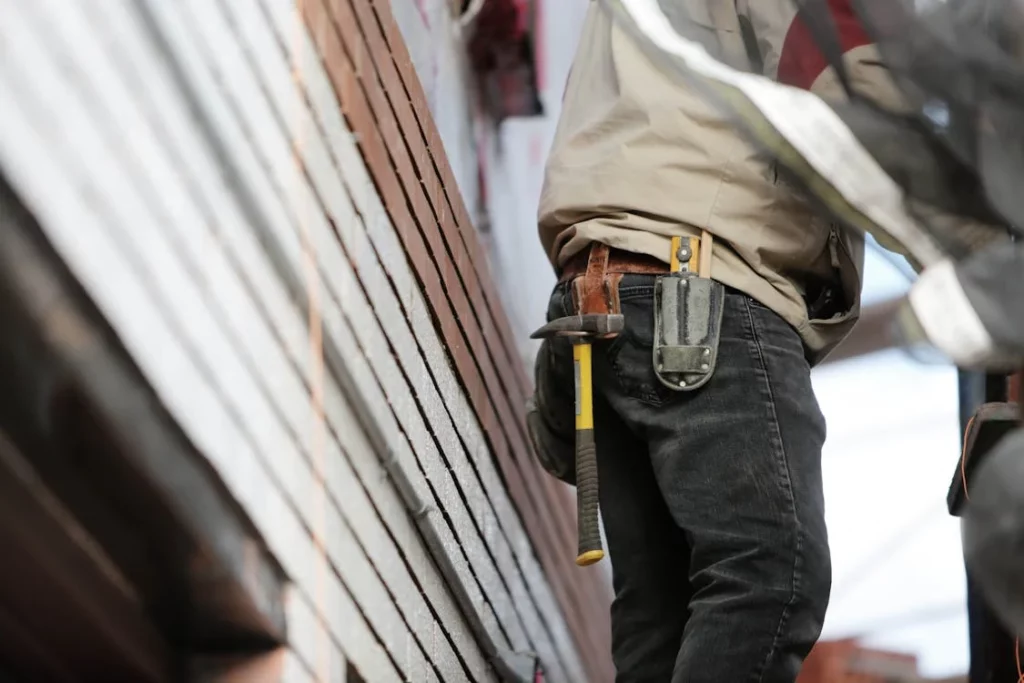Understanding the Risks
When embarking on a home renovation or construction project, one of the most important pieces of advice to remember is to never pay a contractor up front. While it may be tempting to provide payment before work begins, doing so can expose you to a variety of risks and potential pitfalls. In this comprehensive guide, we’ll explore why it’s crucial to never pay a contractor up front and provide practical tips for protecting yourself and your investment.
Why You Should Never Pay a Contractor Up Front
When hiring a contractor for a home renovation or construction project, it’s essential to exercise caution and never pay them up front. Doing so can expose you to a variety of risks and potential pitfalls that could ultimately jeopardize the success of your project and your investment. Here are some compelling reasons why you should never pay a contractor up front:
- Risk of Disappearing Contractors: Paying a contractor up front increases the risk of them disappearing once they have received payment. Unfortunately, some unscrupulous contractors may take advantage of upfront payments and fail to complete the work as promised. By withholding payment until the project is completed to your satisfaction, you can mitigate the risk of contractors disappearing mid-project.
- Lack of Incentive to Complete the Work: When contractors receive payment upfront, they may lack the incentive to complete the work in a timely and satisfactory manner. Without the promise of payment upon completion, contractors may prioritize other projects or cut corners to maximize their profits. By withholding payment until the work is finished to your satisfaction, you can ensure that contractors are motivated to complete the project properly.
- Quality of Workmanship: Paying a contractor upfront can also impact the quality of workmanship. Without the assurance of payment upon completion, contractors may rush through the project or use subpar materials to cut costs. This can result in shoddy workmanship and the need for costly repairs down the line. By holding off on payment until the work meets your standards, you can encourage contractors to prioritize quality and attention to detail.
- Legal Protection: From a legal standpoint, paying a contractor up front can leave you vulnerable in the event of any disputes or disagreements. If the contractor fails to complete the work or performs substandard work, you may have limited recourse if you have already paid them in full. By withholding payment until the work is completed to your satisfaction, you retain leverage and legal protection in case of any issues.
In conclusion, paying a contractor up front is a risky proposition that should be avoided at all costs. By following this fundamental rule and withholding payment until the work is finished to your satisfaction, you can protect yourself from disappearing contractors, ensure the quality of workmanship, and safeguard your investment in your home renovation or construction project.
Risk of Disappearing Contractors
One of the primary reasons to never pay a contractor up front is the risk of contractors disappearing once they have received payment. Unfortunately, some unscrupulous contractors may take advantage of upfront payments and fail to complete the work as promised. By withholding payment until the project is completed to your satisfaction, you can mitigate the risk of contractors disappearing mid-project.
Lack of Incentive to Complete the Work
When contractors receive payment upfront, they may lack the incentive to complete the work in a timely and satisfactory manner. Without the promise of payment upon completion, contractors may prioritize other projects or cut corners to maximize their profits. By withholding payment until the work is finished to your satisfaction, you can ensure that contractors are motivated to complete the project properly.
Quality of Workmanship
Paying a contractor upfront can also impact the quality of workmanship. Without the assurance of payment upon completion, contractors may rush through the project or use subpar materials to cut costs. This can result in shoddy workmanship and the need for costly repairs down the line. By holding off on payment until the work meets your standards, you can encourage contractors to prioritize quality and attention to detail.
Tips for Protecting Yourself
When hiring a contractor for any home renovation or construction project, it’s crucial to take proactive steps to protect yourself and your investment. Here are some essential tips for safeguarding your interests:
- Create a Detailed Contract: Before work begins, create a comprehensive contract that outlines the scope of work, timeline, payment schedule, and any other important terms and conditions. Be sure to specify that payment will only be made upon completion of the project to your satisfaction. A well-written contract can serve as a valuable legal document in case of any disputes or disagreements.
- Verify References and Credentials: Take the time to verify the contractor’s references and credentials before hiring them. Ask for references from past clients and follow up with them to inquire about their experience working with the contractor. Additionally, ensure that the contractor is licensed, bonded, and insured to protect yourself in the event of any accidents or damages.
- Request a Payment Schedule: Instead of paying the full amount upfront, request a payment schedule that ties payments to specific milestones or stages of the project. This can help ensure that the contractor remains accountable and motivated to complete the work on time and to your satisfaction. Be wary of contractors who insist on receiving payment upfront or demand large sums of money before work begins.
- Consider Payment Methods: When making payments to contractors, consider using methods that offer protection for consumers, such as credit cards or payment platforms with built-in dispute resolution processes. Avoid paying with cash or using wire transfers, as these methods offer little recourse in case of any issues or disputes.

Life Of Pix
Create a Detailed Contract
One of the best ways to protect yourself when hiring a contractor is to create a detailed contract that outlines the scope of work, timeline, payment schedule, and any other important terms and conditions. Be sure to specify that payment will only be made upon completion of the project to your satisfaction. A well-written contract can serve as a valuable legal document in the event of any disputes or disagreements.
Verify References and Credentials
Before hiring a contractor, take the time to verify their references and credentials. Ask for references from past clients and follow up with them to inquire about their experience working with the contractor. Additionally, check to ensure that the contractor is licensed, bonded, and insured to protect yourself in the event of any accidents or damages.
Request a Payment Schedule
Instead of paying the full amount upfront, request a payment schedule that ties payments to specific milestones or stages of the project. This can help ensure that the contractor remains accountable and motivated to complete the work on time and to your satisfaction. Be wary of contractors who insist on receiving payment upfront or demand large sums of money before work begins.
Consider Payment Methods
When it comes to making payments to contractors, consider using methods that offer protection for consumers, such as credit cards or payment platforms with built-in dispute resolution processes. Avoid paying with cash or using wire transfers, as these methods offer little recourse in the event of any issues or disputes.
never pay a contractor up front is a fundamental rule to remember when undertaking any home renovation or construction project. By withholding payment until the work is completed to your satisfaction, you can protect yourself from disappearing contractors, ensure the quality of workmanship, and incentivize contractors to prioritize your project. By following the tips outlined in this guide and being vigilant about protecting your interests, you can navigate the contractor hiring process with confidence and peace of mind.

